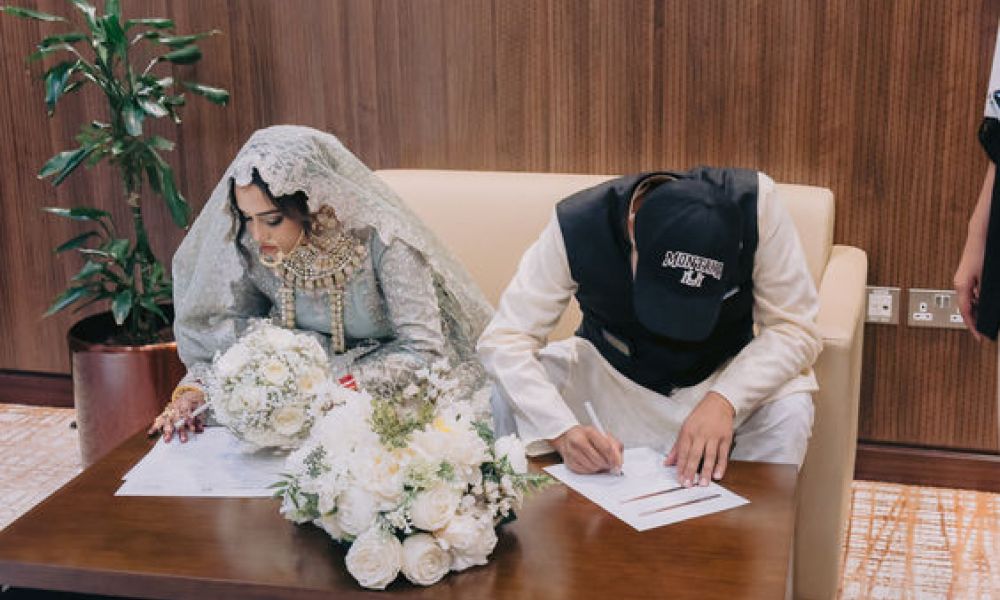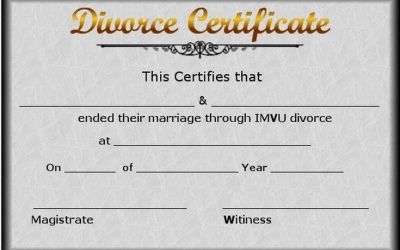
Hindu Marriage With Muslim in Abu Dhabi: An Essential Modern Path to Legal Recognition 2024
Table of Contents ▼
Muslim civil marriages are more than just legal paperwork—they’re a bridge between faith and modernity.
Combining legal and religious aspects of marriage is now easier with Muslim civil marriage laws. These new regulations provide a straightforward way to legalize your union which might benefit you in several ways.
In this blog, we will look into the details of the Muslim civil marriage process, its benefits and the documentation required for both civil and religious ceremonies.
Table of Contents
Civil Marriage For Muslims
The new Muslim civil marriage laws in the UAE have allowed Muslims from foreign countries to practice civil marriages more easily. The Abu Dhabi civil marriage process enables Muslims to get married legally through a streamlined court procedure, establishing their union on solid legal grounds.
A Muslim civil marriage legally protects both partners in matters like property division, alimony, and child custody if things go wrong. It also offers benefits such as inheritance rights, social security, and the ability to sponsor each other for visas and residency.
Setting up a civil marriage is quite easy in Abu Dhabi for Muslims. The city has appointed an attestation officer at the Court to make the registration and finalization process smooth for both residents and visitors
Civil Marriage Eligibility

Federal Law No. (41) of 2022 on Civil Personal Status regulates marriage and family issues. The conditions for a civil marriage as per Article 5 are:
- Both individuals must be aged 21 or above.
- The partners must not be family members.
- In Dubai, at least one person should be a resident.
- Both must give their consent to the marriage.
- Proof of being single must be provided by each individual.
- A disclosure form must be duly signed.
Documents Required for a Civil Court Marriage
To marry in a civil court, you’ll need these documents:
- Identification
- Passport
- Proof of annulment or divorce from earlier marriage
- Two male witnesses
Civil Marriage vs. Shariah Marriage

Muslim civil marriage and Shariah marriage, each exist with its different requirements and benefits. While the law recognizes both marriages, each of these has its own rules that best suit different personal and cultural preferences.
Under the Civil Personal Status Law, Federal Law No. (41) of 2022, civil marriages are performed under a modern, flexible regime. One of the most key features of civil marriage is that it does not require the bride’s consent from a guardian (Wali), making this form of marriage more accessible and less tied to family oversight. This is particularly useful to those couples who prefer privacy in their marrying decision.
Moreover, Muslim civil marriage does not demand the married couple to go for medical tests, therefore, the planning process is simpler in that regard as compared to some other more conservative forms of marriages. The most considerable advantage of civil marriage is inter-religious marriages wherein members of two different faiths can be allowed to marry based on the availability of certain requirements.
Conclusively, upon the fulfillment of conditions and completing all legal formalities, the marriage gets registered through Dubai Courts or the concerned authority to impart lawful status within the UAE and internationally too. It therefore seems to be an attractive option to expatriates or married couples whose quest for marriage would be in a civil way and with less hassle on religious matters.
Shariah marriages, by contrast, are performed in line with the principles of Islamic Sharia law and reflect a more traditional and conceptual approach to marriage according to Islamic tradition.
Within a Shariah marriage, for example, it is an absolute requirement that the bride receives approval from her guardian, known as the Wali, prior to proceedings; this serves to highlight the importance of family participation and supervision in Islamic marriages.
Moreover, one must also acquire medical tests for both the bride and the groom to ensure health and compatibility between the two individuals before the marriage is finalized. Most Shariah marriages are documented in Islamic courts, where the practice and legal function is under Islamic law and jurisdiction.
Perhaps one of the most recognizable features of Shariah marriage is how it limits interfaith marriages: the law usually only permits those marriages that are between individuals of the same beliefs or religion, based upon the traditional Islamic standards. This reflects religious and cultural values instilled in the marriages of Shariah, and it puts a greater emphasis on shared belief and culture within the marriage.
Why Consider a Muslim Civil Marriage?
Getting married under Sharia law in the UAE is mostly a must, but having a Muslim civil marriage afterwards is very advantageous.

In this way, you will obtain legal recognition all over the world, which will make any process concerning foreign authorities easier to go through. Moreover, it will save you from the premarital test, which makes your administrative process easier and quicker.
Guidance through each step will be provided by Easy Wedding, whether a Muslim civil marriage or a Shariah marriage is chosen.
Guide to Nikkah and Civil Marriage
Unclear about ways to get Muslim civil marriage done, here are four easy steps:
Step 1
Conduct the Nikkah ceremony and ensure MOFA attestation for your marriage certificate.
Step 2
Gather and prepare all necessary documents, including passport, IDs, and divorce or annulment certificates.
Step 3
Arrange a date for your civil marriage at the court.
Step 4
Visit the court on the arranged date to finalize your civil marriage and get your official certificate.
Make Your Abu Dhabi Marriage Simple and Joyful!
Want a straightforward path to marriage in Abu Dhabi?
A Muslim civil marriage offers a simplified alternative to traditional Shariah procedures. Easy Wedding offers convenient packages for a smooth experience.
Contact us to learn more and let us help you celebrate your special day with minimal fuss!
FAQs
Can a Muslim marry a non-Muslim in the UAE?
Yes, Muslim men in the UAE can marry women from other religions like Christianity or Judaism. However, Muslim women are generally not allowed to marry non-Muslim men unless the man converts to Islam. Recent changes in the law now allow Muslim women to marry non-Muslim men through civil court procedures, offering a non-religious option.
Do you need to be a resident of the UAE to get married?
No, residency is not required to get married in the UAE. Tourists can also marry there. You will need to fill out a marriage application and provide documents such as your passport and proof of current status. These documents are then reviewed as part of the marriage process.
Is civil marriage the same as Nikah?
No, civil marriage and Nikah are different. Nikah is a marriage based on Islamic religious laws, recognized in Islamic countries like the UAE. Muslim civil marriage, however, is overseen by the government and follows secular procedures, making it suitable for those who prefer a non-religious ceremony.

